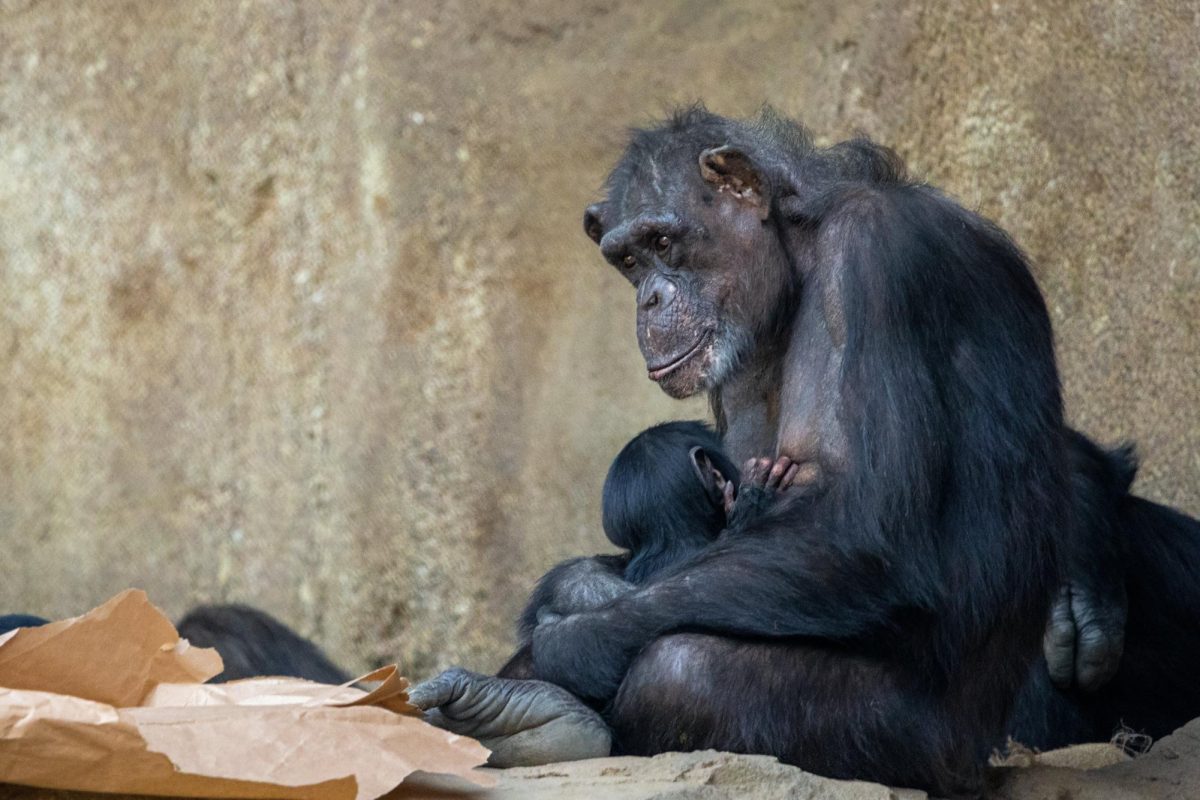Menopause is a period during which reproductive hormones begin to slow their production, an indicator of lower fertility and the menstrual cycle’s end. It’s been studied extensively in humans, yet numerous biologists in the United States have completed past studies that show that primates do not experience menopause like humans do.
However, a new study by Dr. Kevin Langergraber, an evolutionary biologist from Arizona State University, was recently published in the journal “Science” and suggests that some chimpanzees can also experience menopause. The data focuses on older female chimpanzees and keeps records of their hormone levels over the course of their lifetime.
Many theories have been proposed as to why menstruators live longer based on their reproduction stage by scientists around the world. While a definitive theory has not been accepted over the others, the one that stands out the most is called the Grandma Hypothesis, first posited by British evolutionary biologist William Hamilton.
This theory states that since it is no longer safe for parents to bear and raise children at such a late stage, grandparents can support and care for their grandchildren alongside the child’s parents. Studies of women living in farming villages demonstrate that children raised with extra resources have a better chance of survival in comparison to those with fewer resources.
Another consideration is that menopause in primates may have been common at one point but has now become rare due to poaching and human diseases. For the most part, female chimpanzees do not live beyond 50 years, so documentation of this information would be almost impossible to collect. Overall, menopause in primates remains a mystery, and research into the reproductive cycles of other mammals like whales may shed more light on this subject.


























